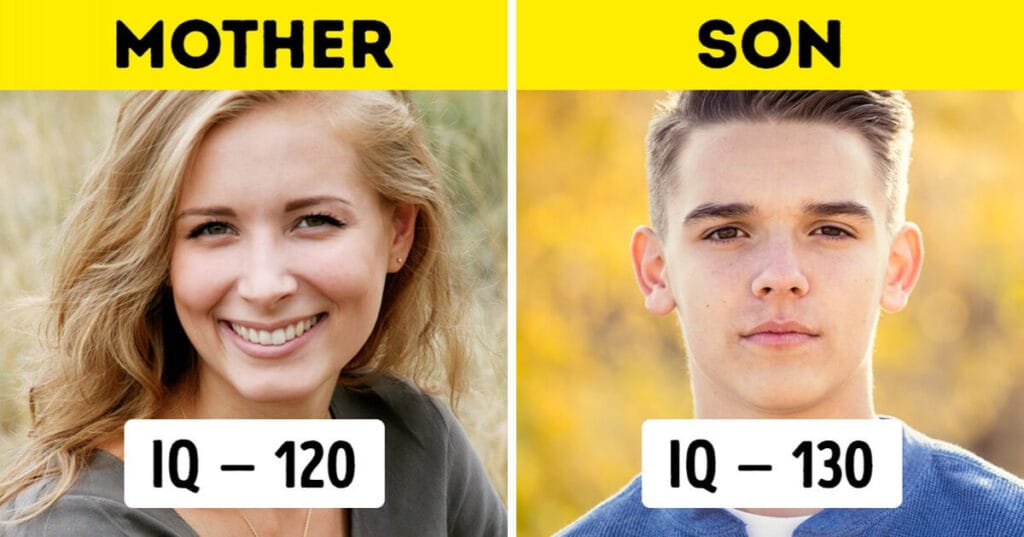
Did you know?
It’s common for people to say that a child gets his or her smarts from their mother. And this statement is almost cliché. But it elevates an intriguing concept. But is it correct? Where does intelligence come from? Is intelligence only determined by genes? Or is intelligence from the way a person is raised? Scientists have studied this. The evidence is more complicated than you might suspect. So let’s get to the facts. Most of the bits of information might surprise you.
The Gene Factor: Nature’s Blueprint
We have genes that contribute to our intelligence. We inherited qualities from both parents. Taken together, these qualities help shape our brain development. These qualities influence how we learn. Researchers focus on twins as a way to understand genes. Identical twins share all of their genes, while fraternal twins share only half of their genes. Studies have found that identical twins have more similar IQ scores than fraternal twins. That could suggest that genes are important.
But it isn’t just one or two genes. Genes tend to act in concert, rather than alone. Each gene has a small effect. We develop a very complicated picture. We know, of course, that we inherit 50 percent of our genes from our mother. And, we inherit 50 percent of our genes from our father. So both parents contributed to our genes.
Read more: The Silent Reader: Do You Hear a Voice?
The Mom’s the Smart One: Where Does It Come From?
The belief that most intelligence comes from mothers, or at least that they have the primary genetic influence, is very widespread; it may be based on some scientific evidence. Some genes associated with intelligence are carried on the X chromosome. Females have 2 x chromosomes (XX); fathers have one (XY). Therefore, a mother passes on an X chromosome to every child, and a father passes on an X chromosome only to his daughters.
There are many other genes associated with intelligence that are carried on all chromosomes; therefore, they are equally delivered to children by fathers. The X chromosome gene idea is a limited and partial piece of the story; therefore, it does not articulate the whole truth.
Nurture matters: The role of growth
While genes may matter, so too does a child’s growing environment, or nurture. The environment structures a child’s brain. It secures intelligence. Development requires good nutrition for brain development, stimulation from cognitive activities like reading and playing. A warm and welcoming home nurtures a child through structure and guidance for learning and development. A good education can help too.
The research examples we discussed about the IQ scores of adopted children, ranked alongside the fact that the IQ scores of adopted children are usually much more similar to their biological parents’ IQ scores, illustrate clearly the part that genes play. However, one also observed gains in their children’s IQ scores in the home of the adopted child. So one sees the effects of nurture. Thus, there is established nature and nurture contributing to intelligence; neither determines intelligence solely.
Gene and Environment Interactions: The Psychological Dance
Intelligence is a multi-layered trait, and psychologists study the degree to which genes interact with the environment. We are not simply either in the “genes are the only thing that matter” camp or the “environment is the only thing that matters” camp. Genes can drive certain aspects of how we respond to an environment. The typical child has a genetic predisposition to be curious.
Thus, a naturally curious child may ask more questions and therefore seek out more learning opportunities. The interaction of both the genes for curiosity, and the environmental cue to read leads to the child seeking out books, thus underlines the interaction of learned intellectual behavior, meaning both genetics and environment are consistently interacting and at least two different forces are working over these interactions, which creates a mutually reinforcing relationship of influences between genes and environment, with one systematically influencing the other.
Additionally, we see that early childhood is the time for relatively stable commitments, and indicates significant factors in understanding these Gene and Environmental interactions. Certainly, the first several years of a baby’s life are characterized by developmental neural plasticity and susceptibility to environmental influences. The effects of early influences can be enduring.

The Numbers Are Telling Us: New Research
Researchers are still studying intelligence, and it is a broad field of study, too. For example, a large-scale study published in the journal Nature Human Behaviour in 2022. It looked at genetic data for millions of people. This study was able to confirm that there are indeed many genes contributing to intelligence, but it learned that the contribution comes from many genes, each contributing a small effect and spread across the entire genome. It’s not just a handful of “smart genes” that we inherit from one parent; intelligence is shaped by many genes.
Moreover, a 2024 meta-analysis of early childhood interventions found that high-quality preschool programs produced large and sustained increases in cognitive abilities irrespective of people’s genetic background. This is indicative of the potential power of nurture (especially in the early years of an individual’s life). Statistics have been setting the example of the power of stimulation for some time now.
Read more: Shedding Roles: Uncover Your Core Identity
Key Points: The Whole Picture
Here are some important things to remember:
- Intelligence is complex. Many factors contribute.
- Both parents are genetic contributors; it is not just the mother.
- The environment (nurture) is also critical for brain development.
- It’s been shown that early childhood experience has a long-lasting effect.
- Nature and nurture combine uniquely, with the contribution of each being complex.
- Broad-stroke explanations will often mislead.
From Myth to Support
The notion that most intelligence comes from the child’s mother is a widespread myth. What is more, the actual truth is much more complex, as both parents genetically contribute. The environment is essential; however, we cannot focus on who gets the credit and meaning behind intelligence forms. Support the growth of the child. Provide an environment filled with love. Provide nutritious foods. Support your child’s curiosity. Support your child’s educational growth. These activities will help a child reach their full potential.




Leave a Reply